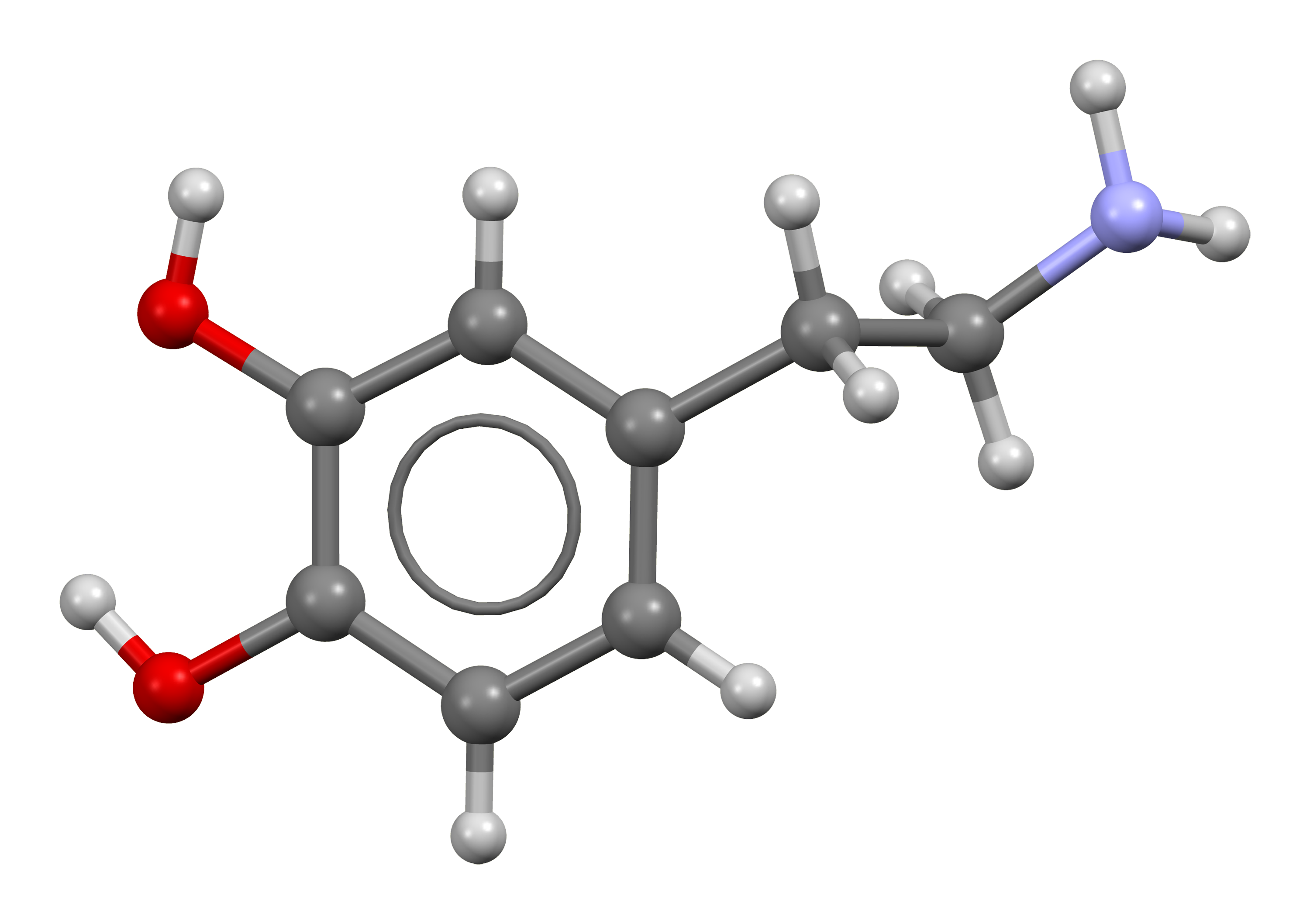Introduction to Dopamine
- Introduction to Neurotransmitters
- The Role of Dopamine
- The Role of Serotonin
- Interplay of Dopamine and Serotonin
- Competing Actions
- Collaborative Actions
- Conflicting Actions on Same Behaviors
- Complexity in Neuronal Combinations
- The Impacts of Therapeutic Drugs on Dopamine and Serotonin
- Dopamine, Serotonin and Mental Health
- Dopamine, Serotonin and Cognitive Functioning
- Settings, Synaptic Plasticity and Sensitization
- Prospects and Challenges in Dopamine & Serotonin Research
Collaborative Actions
Parkinson's Disease: The Interplay of Dopamine and Serotonin

Organic chemical that functions both as a hormone and a neurotransmitter.
Parkinson's disease is a neurodegenerative disorder that primarily affects dopamine-producing neurons in a specific area of the brain called substantia nigra. Symptoms generally develop slowly over years, and include tremors, bradykinesia (slowness of movement), limb rigidity, and gait and balance problems. While the role of dopamine in Parkinson's disease is well-known, the role of serotonin is lesser-known and equally important.
The Role of Dopamine in Parkinson's Disease
Dopamine is a neurotransmitter that plays several important roles in the human body, and one of them is in motor control. The loss of dopamine-producing cells in the substantia nigra leads to a decrease in dopamine levels in the brain, which in turn leads to the motor symptoms associated with Parkinson's disease.
The most common treatment for Parkinson's disease is levodopa, a drug that the brain converts into dopamine. However, as the disease progresses and dopamine-producing cells continue to be lost, the effectiveness of levodopa decreases and larger doses are needed.
The Lesser-Known Role of Serotonin in Parkinson's Disease
Serotonin is another neurotransmitter that plays several roles in the body, including the regulation of mood, appetite, and sleep. Recent research has shown that serotonin also plays a role in Parkinson's disease.
In the early stages of Parkinson's disease, the brain tries to compensate for the loss of dopamine by increasing serotonin levels. However, as the disease progresses, serotonin levels also begin to decrease. This decrease in serotonin can lead to non-motor symptoms of Parkinson's disease, such as depression and sleep disturbances.
The Interplay of Dopamine and Serotonin in Parkinson's Disease
The interplay of dopamine and serotonin in Parkinson's disease is complex and not fully understood. However, it is clear that both neurotransmitters play important roles in the disease.
Some research suggests that serotonin may actually contribute to the motor symptoms of Parkinson's disease. This is because serotonin neurons can convert levodopa into dopamine, which can then be released in areas of the brain where it may cause dyskinesia, or involuntary muscle movements, a common side effect of levodopa treatment.
The Future of Parkinson's Disease Treatment
Understanding the roles of both dopamine and serotonin in Parkinson's disease could lead to better treatments for the disease. For example, drugs that target both dopamine and serotonin systems could potentially be more effective than those that target only dopamine.
In conclusion, while the role of dopamine in Parkinson's disease is well-known, the role of serotonin is becoming increasingly recognized. Further research into the interplay of these two neurotransmitters could lead to new insights and better treatments for Parkinson's disease.